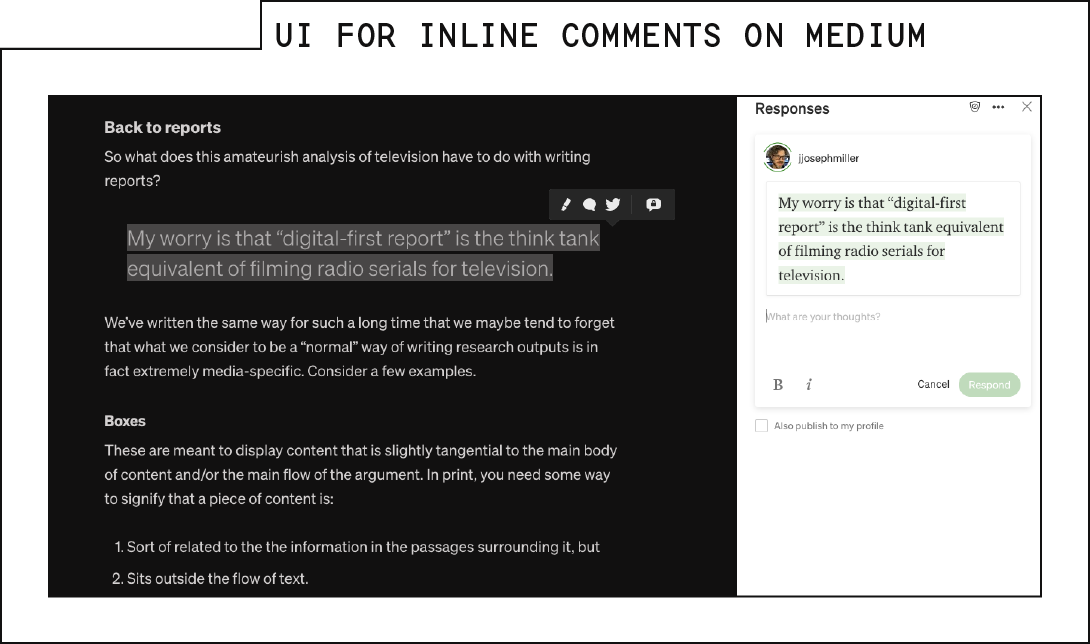Screens, Research and Hypertext
Powered by 🌱Roam GardenAnnotating the Web that Could Be
The easiest way to annotate a webpage is still printing it out and using a pen.
Annotating online is largely a kludge. But there are a few places trying to do it better. Medium’s inline comments are brilliant in this regard: Highlight a passage and add some marginalia. The comment sticks directly to the highlighted passage and automatically generates a running list of all those comments in your own account. It’s marginalia and a note taking app all in one.

Too bad it’s limited only to things written in Medium.
While some research organizations blog at and/or syndicate to Medium, it’s by no means the main source for serious research content.
But there are other options. I’m especially intrigued by Hypothesis, a set of open source tools that “adds a layer over top of the web,” allowing users to add sentence-level annotations to anything. Hypothesis saves these comments as a separate layer, rather than embedding them directly into a specific website. It’s like the linkbases of old, but for comments rather than just for links.
Vannevar Bush would be giddy.
For more context
The current state of online annotation is ... not good.
What to read next
Better annotations are just one aspect of a web that is better suited for research.
Other items of interest
Who is Vannevar Bush and why would he care about a linkbase?
What even is a linkbase?
Tell me about your own history with annotation.
Referenced in
A Brief History of Hypertext
Vannevar Bush publishes "As We May Think" in The Atlantic. Bush proposes a device he calls the Memex, which would store content on microfilm. Each frame of microfilm could be tagged, and the Memex could use those tags to index and cross-reference all of the content. Each user would be able to create their own web of links and annotations.
Essentials of a Better Web
Link databases make it possible to create personal webs on top of content. But frequently, we want more than just a hyperlink—even a hyperlink that encodes relationships. Often we want to add our own notes to the text, to comment or engage in the margins, much as we would inside a printed text.